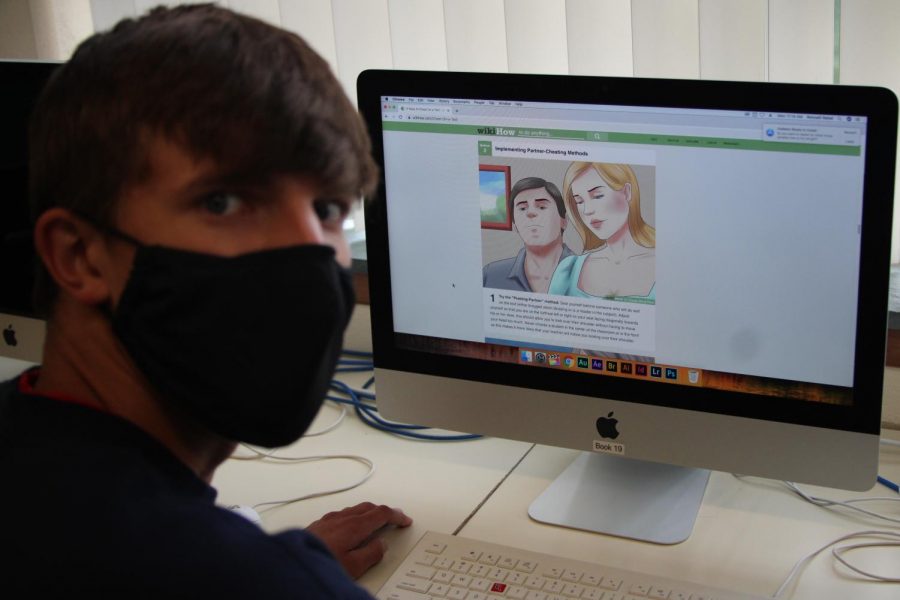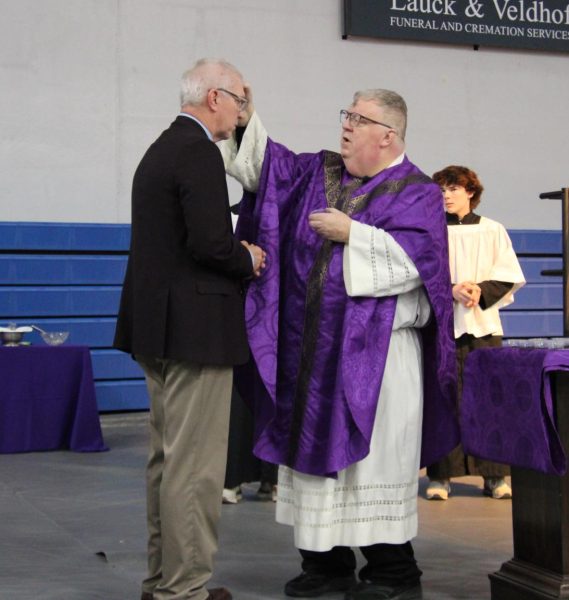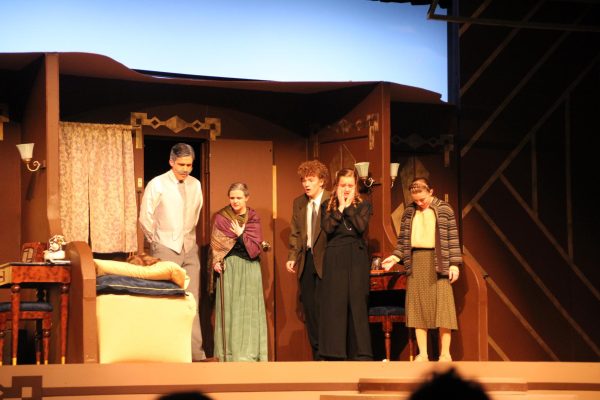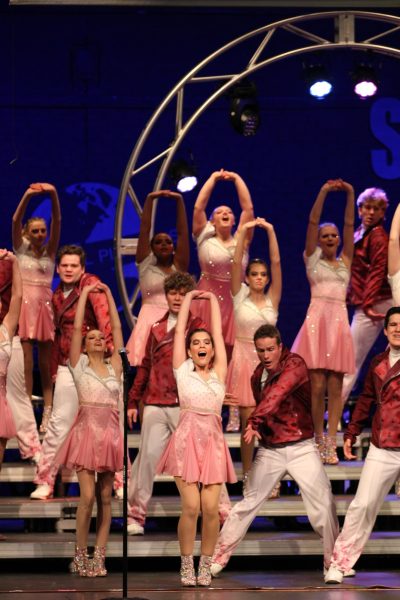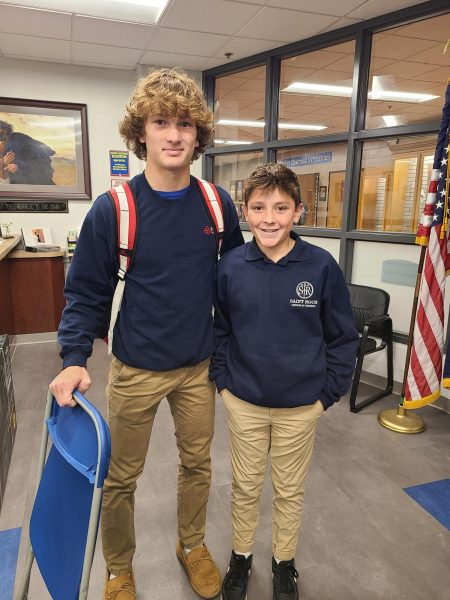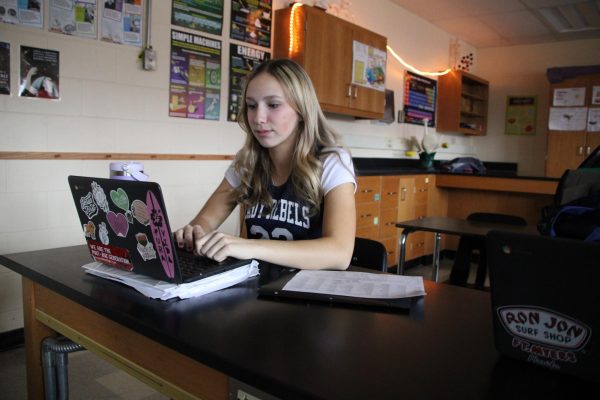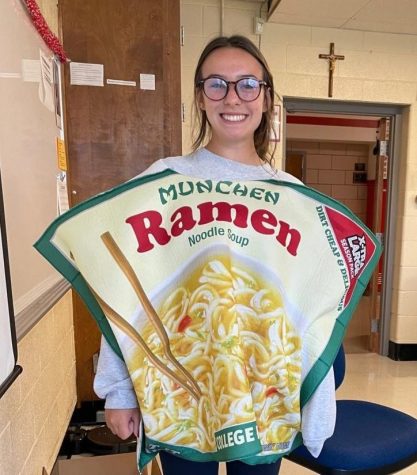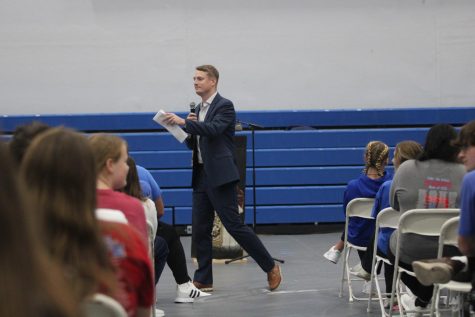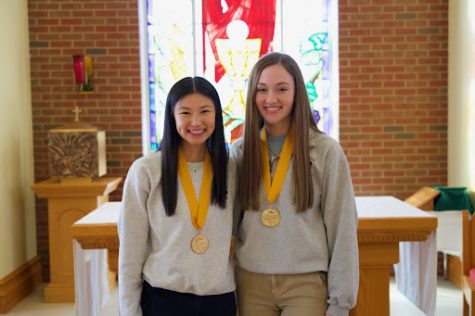Cheating the cheating system
Staff and administrators create impactful anti-creating measures, greatly improve online learning
Photo by Liam Moore
MENACE TO SOCIETY: Roncalli student and Newspaper co-editor in chief Josh Wormann researches cheating strategies on WikiHow. Josh Wormann does not actually violate the academic integrity policy, as this photo is staged.
Last spring, the school was quickly plunged into full electronic learning, caught off guard by the change and unsure of what would actually happen in the world.
It’s not a stretch at all to say that, due to the circumstances, e-learning did not go well.
One such failing was an increased level of violations of the academic integrity policy; it was very easy for students to work perhaps a little too closely on their assignments for the day.
“While we encourage collaboration, we also encourage students to use that collaboration to form their own thoughts. Last spring we knew that some students were taking collaboration too far,” Dean of Students Mr. Tim Crissman said.
The administration was able to prepare more thoroughly for this year’s hybrid schedule, which involves a major online component.
“One thing we’ve asked for our synchronous learners is that they agree to come in and do some assessment face to face–unit tests, high stakes stuff. We do have teachers who will ask the kids at home to see their workspace, and we’ve alternated testing so that the hybrid kids are always testing face to face. We’ve also rewritten tests and allowed open notes for synthesis and analysis,” said Mrs. Beth Reel, Assistant Principal of Academic Affairs.
Hybrid learning is designed to keep the same level of academic rigor as full face-to-face instruction would–something that e-learning wasn’t able to accomplish–as well as maintaining the integrity of schoolwork. While academic honesty so far has been relatively good, in no small part thanks to the administration’s efforts, the students certainly deserve some of the credit.
“As far as I know we haven’t had a whole lot of issues. I think our students are honest; what we have to do is count on the integrity of the students,” Reel said. “The key to it is rethinking how we assess student knowledge.”
This “rethinking” isn’t just an anti-cheating measure, but rather has been a goal for the past six or seven years–the school is trying to test students over learning and comprehension, not just recall, and the new learning environment and its risks aren’t going to stand in the way of the school’s mission of creating lifelong learners.
No matter how difficult the world’s circumstances become, our students and staff can always be counted on to put in their best effort to become better, more educated people.

